- Published on
- 07/11/2020
Introducing BIND DEX & ERC20 Swap Service
As a part of our final updates before the Compendia Mainnet, we added major new features to the wallet and testnet.
nOS Swap Service & DEX
Ethereum has an incredible ecosystem. DeFi (Decentralized Finance), DAOs, oracles, non-fungible tokens, decentralized exchanges, online games… The sky is the limit!
Letting you use BIND with this ecosystem would open up a new world of possibilities.
So we built a service for that!
Introducing the DEX & Swap Service.
We hope you enjoy these new products as much as we enjoy building them!
ERC20 Swaps (wBIND)
wBIND is an ERC20 version of BIND on the Ethereum blockchain.
You can swap BIND for wBIND and vice-versa at a 1:1 ratio within the wallet.
Next to using your BIND on Compendia for features like staking, voting, transferring, and creating databases, you can also swap BIND to wBIND and use it on Ethereum with any ERC20-supported application (most DeFi apps and services).
You can hold BIND on your Compendia Wallet, and wBIND on your Ethereum wallet (such as Metamask).
Note: The swap service is currently only live on the Compendia Testnet and the Ethereum Ropsten Testnet. You can’t use your NEP5 tokens just yet!
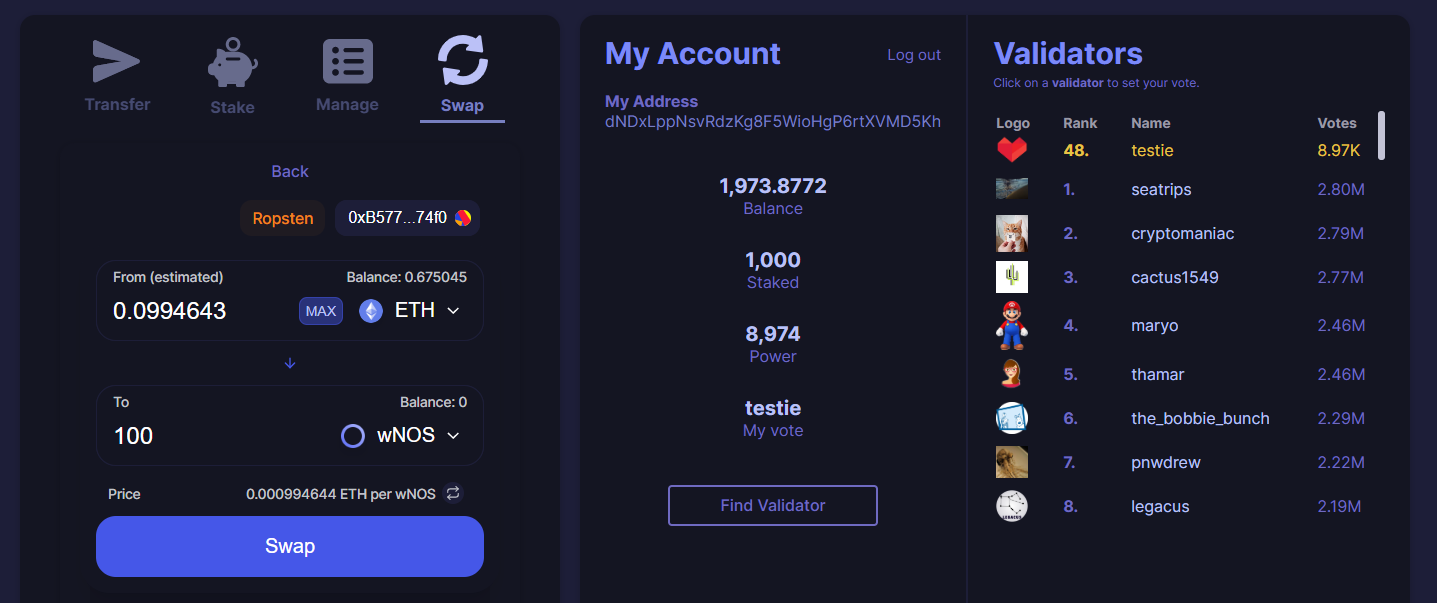
Decentralized Exchange
The wallet now has a built-in decentralized exchange (DEX) powered by the Uniswap Protocol.
You can use the DEX to instantly buy and sell wBIND for ETH.
All you need is some ETH and you can trade! No account or KYC needed.
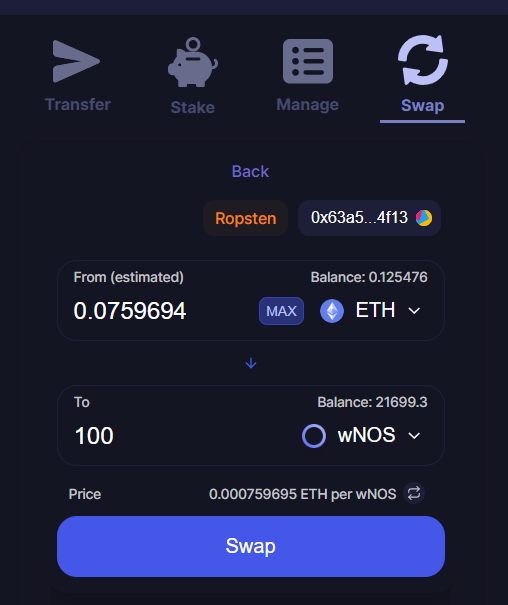
The DEX is a part of the nOS Wallet
If you don’t have any BIND, you can simply get some wBIND on the DEX and then instantly swap them to “real” BIND!
Here’s what that looks like:
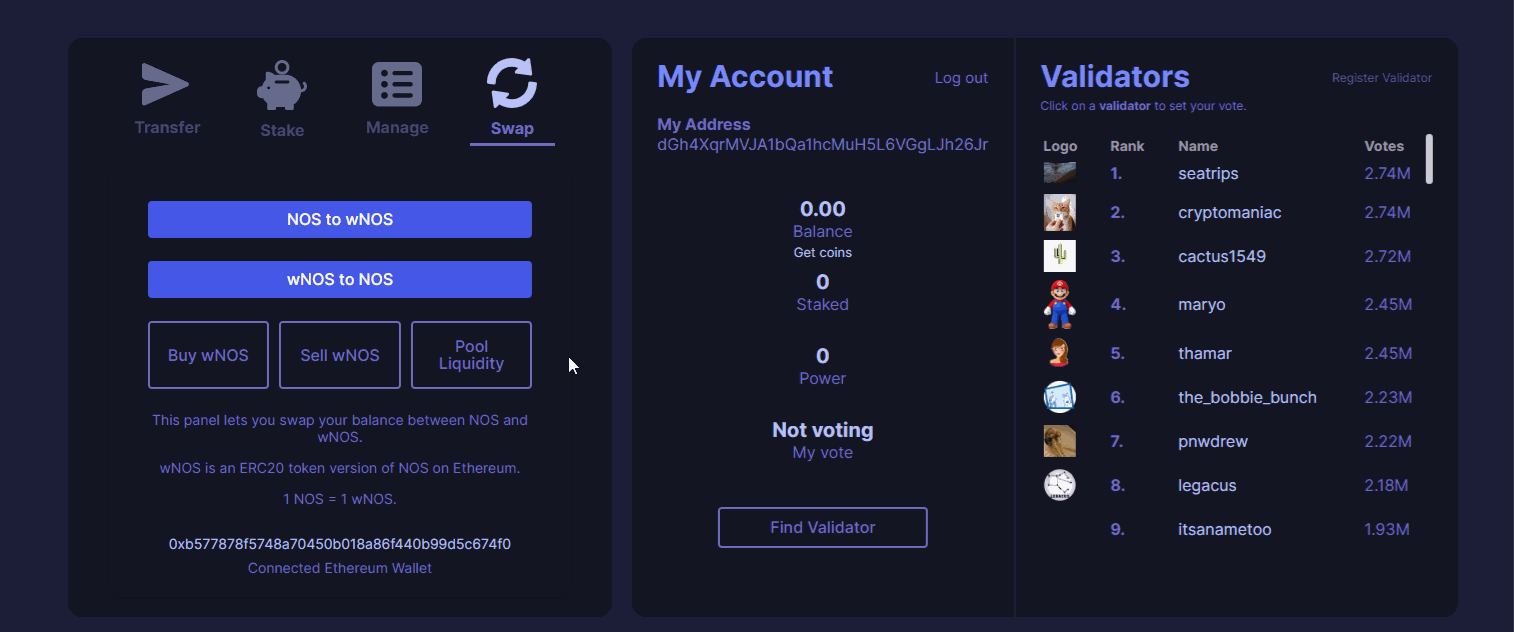
Real coins in a few clicks.
Note: this is currently only live on the testnet.
You can try it out right now on https://wallet.nos.dev (make sure to get some free testnet ETH from a faucet)
When the mainnet launches, you’ll be able to use the swap service with real BIND (and real ETH).
Earning from DEX Liquidity
Uniswap distributes all trading fees (0.3% of each trade) to liquidity providers.
If you own wBIND and ETH, you can pool liquidity on the DEX and earn ETH and wBIND every time someone makes a trade.
Adding liquidity to the wBIND/ETH trading pair is easy:
Go to the wallet’s Swap panel
Click Pool Liquidity
Enter the amount of wBIND and ETH that you want to pool.
Click **Supply **and you’re done!
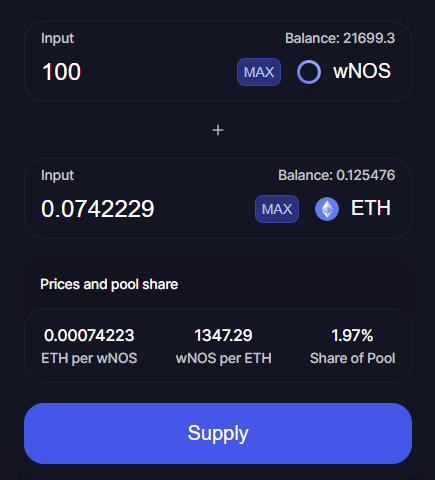
The amount of wBIND and ETH that you pooled will fluctuate based on DEX buy and sell orders.
The higher the liquidity (more wBIND and ETH pooled), the less your own pooled funds will fluctuate.
For example: if someone buys wBIND with ETH, then your pooled ETH will increase and wBIND will decrease.
You earn ETH and wBIND from every single trade on the trading pair, based on how large your share of the liquidity pool is.
For example: if you pooled 10,000 wBIND + 10 ETH, and the total of all wBIND and ETH pooled in the smart contract is 100,000 wBIND + 100 ETH, then your pool share is 10%. That means you will receive 10% of all collected trading fees.
You can see your pool share in the “Pool Liquidity” panel.
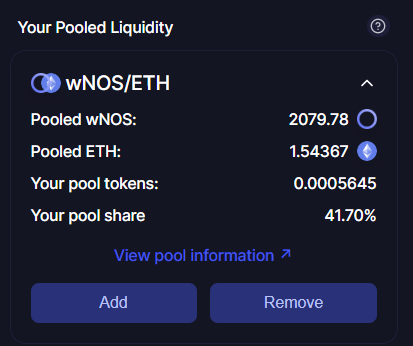
In this example, this account has a 41.70% pool share. They receive that same percentage of all the collected trading fees on their Ethereum wallet.
You can withdraw your pooled funds at any time.
Wallet Management
Account management is now a breeze!
Before this update, you could only register and log in with a 12-word passphrase (mnemonic).
Now, your keys are encrypted and stored locally inside your wallet, so you can easily log in using only a password.
You can import and export wallets by files and encrypted keys. You can also import a wallet using its mnemonic key.
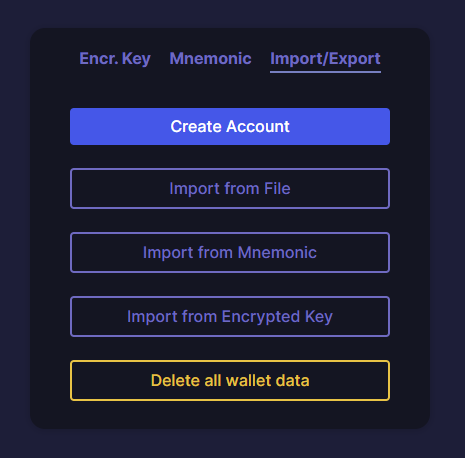
Now you can easily and securely manage multiple wallets without needing to copy full mnemonic keys.
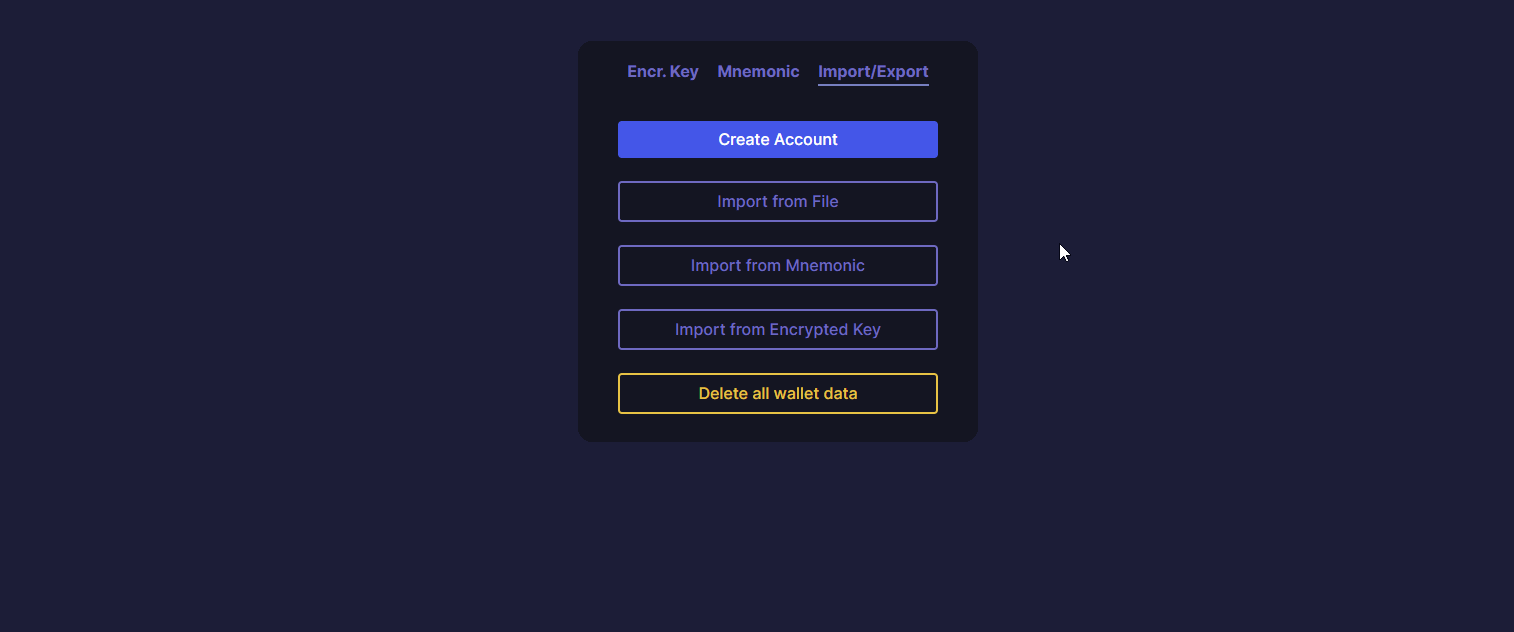
Code Update: Refactor to Typescript
The wallet app is built with Svelte, a new and fast-growing Javascript framework.
Recently, Svelte also gained better support for Typescript: a strongly-typed version of Javascript.
We migrated the wallet codebase from Javascript to Typescript, making it more secure and error-resistant by design.
If you do run into any bugs or errors, let us know on Telegram!


